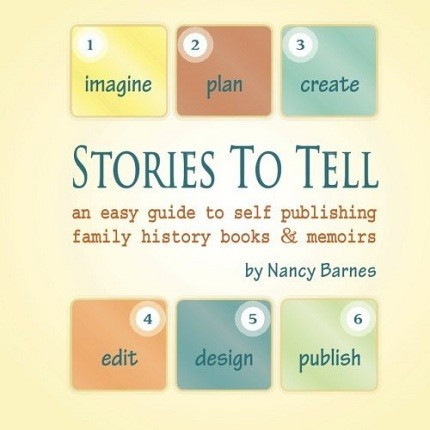Get Your Book Finished By Managing Time -- And Changing Your Attitude

I plan to write a family history book someday, I just don't have time to work on it right now, said person after person at the Colorado Family History Expo, where I spent the weekend with my wife Nancy Barnes, the managing editor of Stories To Tell. They all wanted to write a family history, but believed that it would never happen, or at least it would be a good long time before it did.
It reminded me of what Letters to My Kids blogger Bob Brody said in his Father's Day article on SFGate.com. Brody did a survey of parents and grandparents and found that three of four said they should write a family history, but nearly half said they lack the time to dedicate to it.
That's too bad. It doesn't have to be that way.
The first step toward completing a family history book is a change in attitude. Most people who see time as an obstacle view their book as possible only after something else happens. Many say, When I get my genealogy research done ... But anybody who has spent any time working on genealogy knows that the research is never done. Research is an ongoing process. A book is a product based on what you know at this time.
If you want to get a book into print you would be well served by taking Stephen Covey's advice. In The 7 Habits of Highly Effective People, Covey's first habit is Be Proactive. He says it is essential to take the initiative and recognize our responsibility to make things happen.
Making things happen doesn't mean you have to put everything else aside, lock yourself in your attic and bang away at the computer until the manuscript is done. Brody said that for several years he told himself that he didn't have time to get his family's stories down on paper. But then I did it. I started to keep journals, one for my son and another for my daughter. Every week I took an hour or so to capture a special memory.
It's not the amount of time that you set aside, but the regularity of your time that makes the difference. Be realistic about the time you have available.
Once you have decided to commit to work regularly on your book, set a date to complete the project. Do you want to complete your book for Christmas, Grandma's 90th birthday, a family reunion? Once you have your date, plan backwards. To be able to distribute the book on the date you've chosen you'll be able to say that it needs to be to the printer by a specific date. To get there, you will need to leave time to get your book cover and interior designed. Plan time to edit. That will give you a date by which you'll need to complete the manuscript. You can set a date by which you'll need a plan and outline for the book before you begin writing. When you have completed your tentative timeline, look at the dates to make sure they are realistic. If not, make some adjustments either in your completion date or the scope of the book you plan to write.
Once you have a plan for your project, you will find that time no longer is an insurmountable obstacle. Completing your book will no longer seem like some mythical Shangri La somewhere out in the mist of an uncertain future. You'll control your time and know exactly when your family members will be reading your book.
Biff Barnes is a historian who has published extensively on the history of San Francisco, his hometown. His work appears in California Publisher, California History, California Living, and American West.
Barnes provides guidance to memoir and family history authors at Stories To Tell Books, which works with writers to develop their nonfiction, fiction, and poetry for professional publication. This piece originally appeared at the Stories To Tell Books Blog, at www.storiestotellbooks.com/blog.
© Copyright IBTimes 2024. All rights reserved.





















